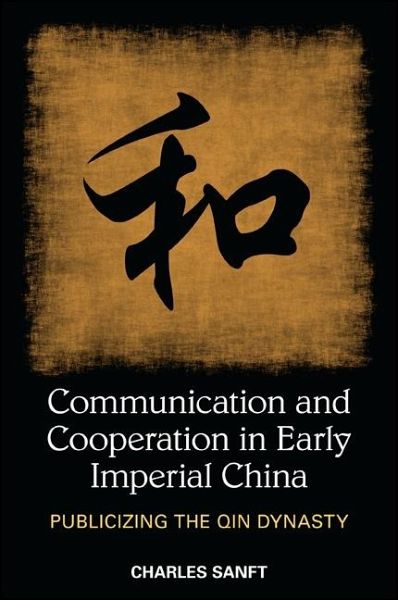
Communication and Cooperation in Early Imperial China (eBook, ePUB)
Publicizing the Qin Dynasty

PAYBACK Punkte
13 °P sammeln!
Challenges traditional views of the Qin dynasty as an oppressive regime by revealing cooperative aspects of its governance.This revealing book challenges longstanding notions of the Qin dynasty, China's first imperial dynasty (221-206 BCE). The received history of the Qin dynasty and its founder is one of cruel tyranny with rule through fear and coercion. Using a wealth of new information afforded by the expansion of Chinese archaeology in recent decades as well as traditional historical sources, Charles Sanft concentrates on cooperative aspects of early imperial government, especially on the ...
Challenges traditional views of the Qin dynasty as an oppressive regime by revealing cooperative aspects of its governance.
This revealing book challenges longstanding notions of the Qin dynasty, China's first imperial dynasty (221-206 BCE). The received history of the Qin dynasty and its founder is one of cruel tyranny with rule through fear and coercion. Using a wealth of new information afforded by the expansion of Chinese archaeology in recent decades as well as traditional historical sources, Charles Sanft concentrates on cooperative aspects of early imperial government, especially on the communication necessary for government. Sanft suggests that the Qin authorities sought cooperation from the populace with a publicity campaign in a wide variety of media-from bronze and stone inscriptions to roads to the bureaucracy. The book integrates theory from anthropology and economics with early Chinese philosophy and argues that modern social science and ancient thought agree that cooperation is necessary for all human societies.
This revealing book challenges longstanding notions of the Qin dynasty, China's first imperial dynasty (221-206 BCE). The received history of the Qin dynasty and its founder is one of cruel tyranny with rule through fear and coercion. Using a wealth of new information afforded by the expansion of Chinese archaeology in recent decades as well as traditional historical sources, Charles Sanft concentrates on cooperative aspects of early imperial government, especially on the communication necessary for government. Sanft suggests that the Qin authorities sought cooperation from the populace with a publicity campaign in a wide variety of media-from bronze and stone inscriptions to roads to the bureaucracy. The book integrates theory from anthropology and economics with early Chinese philosophy and argues that modern social science and ancient thought agree that cooperation is necessary for all human societies.
Dieser Download kann aus rechtlichen Gründen nur mit Rechnungsadresse in A, D ausgeliefert werden.













